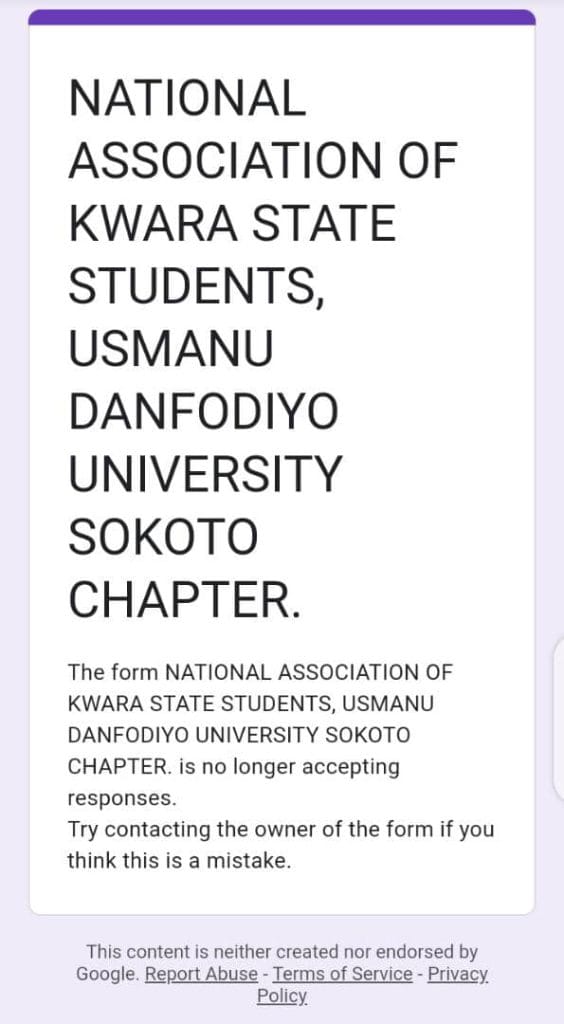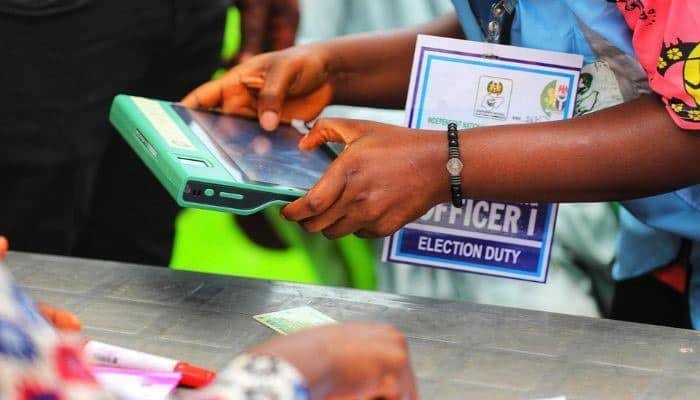It used to be a thug of war every time the National Association of Kwara State Students (NAKSS) in Usmanu Danfodiyo University, Sokoto, were on the verge of choosing leaders for their association. One of the most turbulent times was in 2018. This time, the main campus of UDUS almost became a scene of chaos.
The association, NAKSS, is the mother union of sixteen (16) local government associations in UDUS. It has a rule of zoning its political positions to each Kwara Central, North, and South senatorial district. However, this strategy did not curb the violence and struggle emerging from election matters.
Mahmud Bonni, a (then) 200-level student and party official of the association of Baruten local government students, found himself in a chaotic moment, battling to claim the office of presidency from the students of the Moro local government association. Some students from other senatorial districts did not support his candidacy, and this quickly spiralled out of control, with students who hailed from the same senatorial districts backing their brethren.
This scuffle drew the attention of the authorities and forced the school management to threaten to delist NAKSS from the university’s registered associations.
Not only that. The process also planted a seed of political apathy in the minds of many students. Usman Ibrahim, a 400-level law student, is one of such students. Usman said the intimidation of voters made him worry about his safety.
The Dawn of New Hope
As part of the measures to cushion the electoral effect, NAKSS constituted a caretaker committee (CTC) to steer the association’s affairs for the 2020/2021 academic session.
However, the committee could only last for an academic session. The association needed another leadership set for the 2021/2022 academic session. And to represent the people’s will, this time, NAKSS needs elected leaders, not selected.
But, the stigma of the 2018 election is still fresh in the memory of many students. Thus, the student association adopted an E-voting system to ameliorate violence associated with the electoral process on campus.
“I was delighted when one of my colleagues brought up the idea of an Online election system. At first, there were arguments as to how it would be done, as it’s a novel system in UDUS, but with more deliberation and consultation, it was a success, and there was no issue,” Usman Ibrahim, who had vowed to abstain from NAKSS election, said.
Speaking with the welfare director of the association, Lawal Habeebullahi, who served as the key developer of the E-voting website, said the system was adopted because of the electoral violence and physical stress of the students.
“We aim to curb physical violence, the stress of long queues, enabling the student to vote from their various hostels peacefully and to provide free and fair election among the multi variance culture in Kwara.”
Habeebullahi told The Liberalist that the association used Google form, where students of Kwara State were required to click Google form link, enter their details, and vote for the candidates of their choice.
“We made use of Google form, it was well planned and managed by expert use of tools, considering some important and unique student features such as student official mail, admission number, upload of ID card, state of origin, and some students’ data.”
In an interview with Mohammed Alhassan Bio, a 300-level student and member of the NAKSS Elcom, shed more light on the E-voting system.
“Students are to log to the website with their school email to cast their votes, and if anyone uses his or her personal email, the vote is invalid.”
“What we did was, we use students’ Gmail (school email) since every Student in UDUS has their own, and if you use another Gmail apart from the school Gmail, we’ll detect it, and that is going to be an invalid vote, and every student can not vote more than one. We, the ELCOM, are a 7-man committee. We try our best to make sure that there’s no nepotism and favoritism, and that makes us achieve our goal,” Alhassan said.
Meanwhile, a software engineer and cybersecurity specialist, Adamu Ibrahim Sani, said electronic voting can be done with Google Forms but not directly.
“There is what we call radio or radio box in HTML (Hypertext Markup Language); it is an input tool that allows you to choose between two options or more. Using Google form is just like posting a survey form.”

“Google Form is one of the free built software, which leads to the majority of us using it, and we don’t want to code to build our software, rather we prefer to leverage the power of other tools that are on the internet to build our software without considering the consequences of using those tools.
However, concerning internet fraud due to technological advancement in the world, Mr Ibrahim said Google forms could be hacked as long as there is the internet: “As long as there is the internet, there is hacking, and Google tools can be hacked. Google faces many minor attacks, which sometimes it uses to succeed, and sometimes it will be hacked.
Mr Ibrahim added that Google can give you the maximum security that they can provide. Still, they can be hacked, “for example, if somebody hacked your Gmail, he hacked whatever packages you have in the internet with that Gmail, be it Google form, drive, doc, and everything you have with the Gmail.”
Students React
Abeebullahi Al-habeeby, a 300-level student, recounted the effectiveness of the e-voting.
He, however, said network glitches were one of the challenges.
“If I recall correctly, it went well, but the link was inaccessible, which we’re unable to log in but it was later resolved so we are able to cast our vote. Electronic voting usually has a network barrier which renders it ineffective.”
Similarly, Isiaq Ibrahim, a 300-level student, also faulted the network breakdown of the system, adding that “ I was unable to do that (vote) because of the network.”
Mujeed Adebayo said that e-voting lacks effectiveness, credibility, and reliability, serves as a corrupt way of exercising the franchise, and can be manipulated by the moderator of the site. “It paves a way for easy manipulation of votes because only the moderator can plan accordingly to the results he/she wants.” The results are only based on the operator(s) intention, he said.
“E-voting also serves as a corrupted way of expressing franchise. For example, during the last NAKSS election, people gave out their credentials for a token amount of money without knowing the level of competency, capacity, ability, or even experience of such a candidate.” he said.
Notwithstanding, the adoption of the e-voting was aimed at curbing election violence in NAKSS, and the students’ stress by allowing them to vote remotely and freely without fear or favour from their halls of residence. However, the lack of adequate electricity and technical resources challenged the association in attaining its goal.
Kolawole Abdulqudus, the caretaker committee chairman and overseer of the development, narrated to The Liberalist that there was no electricity and the transmission of the results let them spend some funds, “the election cost us some funds, I couldn’t remember the actual amount and the main thing we spend money on is the transmission of the result because there is no electricity. That alone makes us rent a generator, projector, and some other petty things,” he said.














